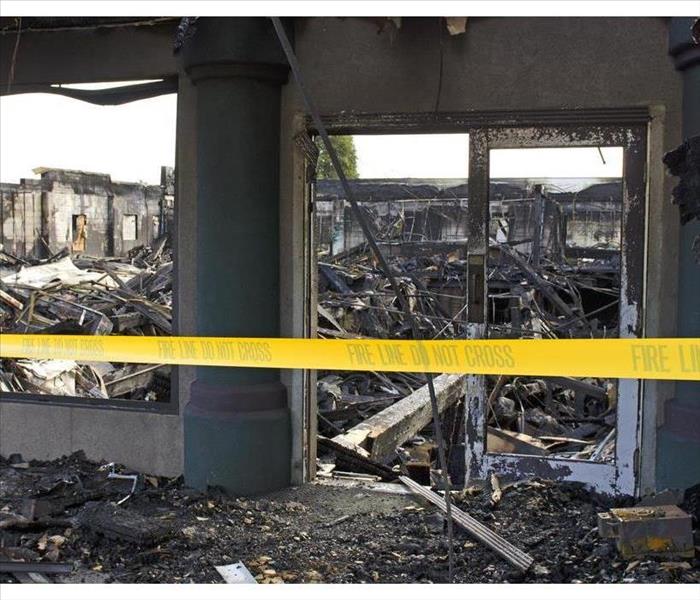Understanding Smoke Damage After a Fire
10/21/2021 (Permalink)
Understanding Smoke Damage Following a Fire
Fire can be an underestimated and dangerous entity. But what most people don’t know is that the colorful flames are often not the cause of most damage during a fire. It is estimated that smoke does three times as much destruction as the blaze that can eat through a commercial building. While the inferno burns the structure, the soot and smoke damage send tendrils of destruction throughout the structure in the most unexpected ways. To completely remove the offending smell fire can leave behind in Bangor, PA, the smoke and soot must be eliminated from the most unanticipated places.
Understanding Problems
While property can be damaged by more than a blazing firestorm it can be difficult to identify where to find the heaviest concentrations of smoke filled areas. Knowing the following can help you find where smoke and soot damage have collected within the building.
- Airflow patterns
- Temperature
- Immediate environment
In other words, recognizing what has potentially been damaged by smoke can be more a calculation than a guess.
Unexpected Damage
Experts in fire repair and restoration are often trained to investigate unexpected areas where smoke damage can collect. This includes closets, drawers, window ledges, and behind draperies. The professionals often learn that the hot, soot and smoke-filled air rapidly invades the cooler air inside, under, and behind objects. That is because as the molecules heat, they can be sucked into unheated areas as soot collects onto unexpected surfaces causing considerable damage.
Smoke also collects in unexpected places such as under nail heads, behind pictures, in brick crevices, inside light fixtures, and under glass covers of tables and desks. Office plants can similarly conceal smoke as it clings to leaves, moss, and plastic containers. Smoke can also penetrate the paint on walls, lacquer on furniture, and wooden doors and window frames.
Mysterious Smoke
Restoration after a fire can take time because smoke damage can often be more extensive than the flame or water damage. In the end, smoke is typically neither random nor erratic. Physics can help restoration specialists take the mystery out of smoke cleaning and get the building open quickly.





 24/7 Emergency Service
24/7 Emergency Service
